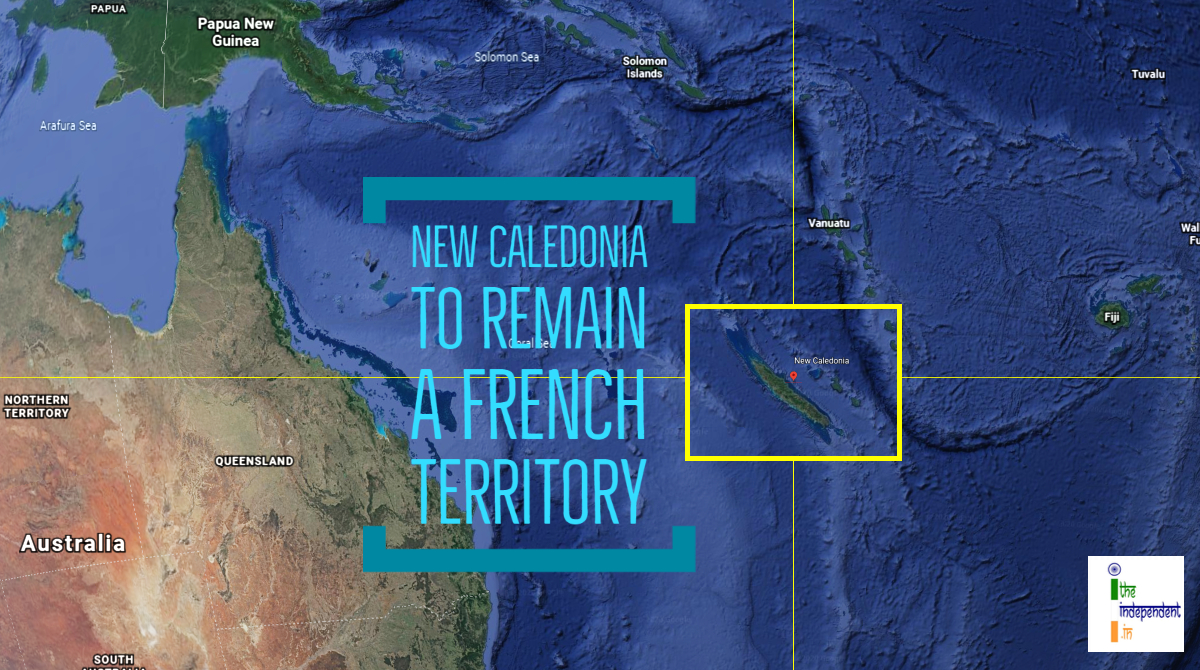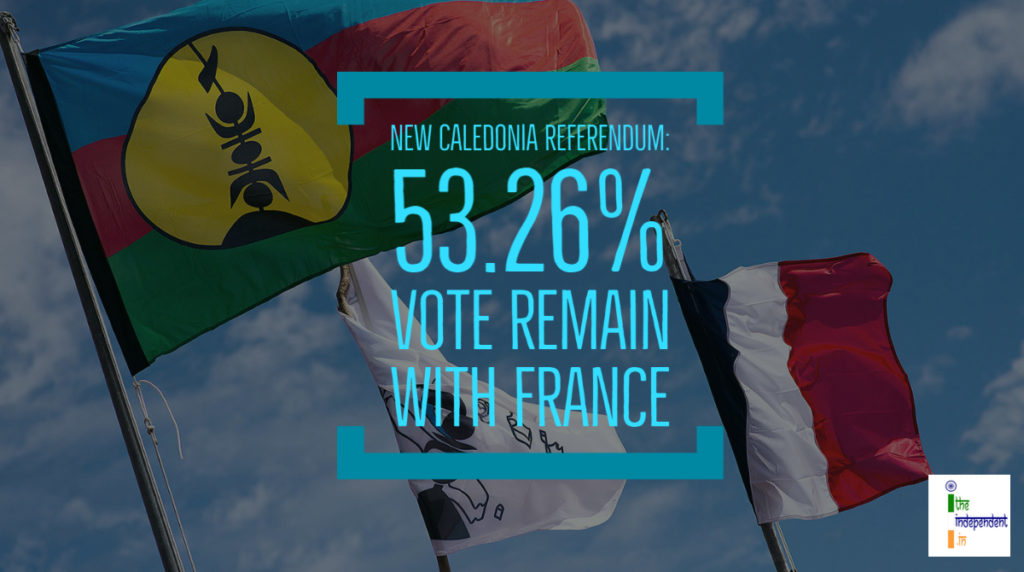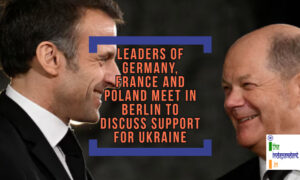
The Southern Pacific French territory of New Caledonia has decided by voting to remain a French territory.
53.26% of more than 180,000 registered voters opted to remain with France. As per the election officials, the vote saw more than 80% turnout.
In case New Caledonia were to become Independent, it would have deprived France of its most significant territory in a region where China is expanding its influence.
Les Calédoniens ont confirmé leur souhait de maintenir la Nouvelle-Calédonie dans la France. C'est une marque de confiance dans la République. J’entends aussi la voix de ceux qu’anime la volonté de l’indépendance. Nous construirons tous ensemble la Nouvelle-Calédonie de demain.
— Emmanuel Macron (@EmmanuelMacron) October 4, 2020
The French President Macron called the vote a “mark of confidence ” for the French policies in the region.

The United Nations (U.N.) and the regional Pacific Island Forum observed the vote in the archipelago, which is located 1,200 km (750 miles) East of Australia and 1,350 km (840 miles) West of Fiji. This is the second such referendum. Earlier in 2018, New Caledonia voted 57% against 43% to remain a French territory.
As far as history of New Caledonia goes, it was first discovered by a British explorer – Captain James Cook on September 4, 1774. He named it “New Caledonia”, as the Northeast of the island reminded him of Scotland. About 50 American whalers were recorded in the region (Grande Terre, Loyalty Island, Walpole and Hunter) between 1793 and 1887. Contacts with visiting ships became more frequent after 1840, because of their interest in sandalwood.
Later, as trade in sandalwood declined, it was replaced by a new business enterprise, “blackbirding”, where Melanesian or Western Pacific Islanders from New Caledonia, the Loyalty Islands, New Hebrides, New Guinea, and the Solomon Islands into indentured or forced labour in the sugar cane plantations in Fiji and Queensland. Blackbirding was practiced by both French and British-Australian traders.
In the mid-19th century, France colonised New Caledonia and won greater autonomy and the right to hold upto 3 referendums on its political status under the Noumea Accord, signed between French and local leaders in 1998.
The Nouméa Accord of 1998 is a promise by the French Republic to grant political power to New Caledonia and its original population, the Kanaks, until the territory decided whether to remain a special collectivity of France or become an independent state. Meanwhile, France would continue to control military and foreign policy, immigration, police and currency until that time.
However, Kanaks, who comprise 39% of the population feel they have been deprived of their basic rights and experience higher levels of unemployment and poverty, as well as lower achievement in higher education. In the 2018 referendum, the vast majority of those who voted for independence were Kanak. The people who supported continuing ties with France were either of European descent or from other non-Indigenous minority groups.
Kanaks want independence as it would mean decolonisation, freedom, reduction in inequality and their right to decide the future of the islands. People supporting France are proud of their French heritage and say that their high standards of living and good public services are because of French subsidies.







